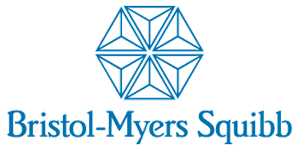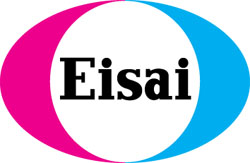
Essentials of Oncology, Solid Organ and Blood/Marrow Transplant Management for the Health Care Team
CANCELLATION NOTICE |
"I want to be at this conference every year! The speakers are amazing and I gain so much information from them."
See more of what 2019 attendees are saying.
For more than 20 years, this conference has exceeded attendee expectations. Why? Because every session is led by practicing experts who are highly experienced faculty from prominent transplant and cancer programs throughout the U.S. OptumHealth Education has been educating the managed health care community for more than 30 years. The industry recognizes the impact these conferences have on the care of patients. Faculty make time in their demanding schedules to relate the latest advances in treatment guidelines, diagnostics, and medical and pharmacological interventions with our audiences! This year, they will also explore exciting recent developments and future directions of biomedical sciences—such as cell and gene therapy, immunology, and genomics—that are transforming treatment options for many diseases.
Whether you are new to the transplant or oncology fields or if you have been managing patients for decades, this is the conference that is worth your time, attention and CE dollars—although, not many of them, as this is one of the most economical conferences in the industry! The agenda is painstakingly crafted to address critical and current issues, from a clinical and financial perspective, providing information that you can apply to the management of your patients. You WILL walk away energized, informed and armed with the information you need to excel in your role.
Why you should attend:
- Receive two days of valuable information provided through thought-provoking presentations delivered by both national experts in transplantation, organ failure management, and cancer treatment and their patients.
- Acquire the keys to optimize the management/benefits of individuals with cancer and/or those undergoing organ or blood/marrow transplant.
- Discover advances, trends, and updates on relevant topics within these fields, such as medical, psychosocial, and surgical-transplant management; infectious disease; biomedical therapies; and changes to the national policy on organ allocation.
- Be informed about the latest guidelines in and future applications of transplantation and cancer care, and discover current and emerging strategies to adapt standards and best practices to improve patient care and outcomes.
- Meet others in the industry who do what you do! Network, socialize and energize during your conference stay.
- Return to work with increased knowledge and confidence in the exceptional care you provide to transplant and/or cancer patients or in the management of their benefits.
Target Audience
Designed for the interprofessional health care team
This educational activity has been developed by the health care team to promote collaborative practice in health care delivery by providing a broad range of topics for a variety of learners. It is intended for health care practitioners that are responsible for the care of transplant and/or oncology patients or management of their benefits, as well as for those who desire to gain or enhance their fundamental knowledge and understanding of transplant medicine and cancer treatments.
| Who attends? | |
|
|
| ... AND ANYONE ELSE INTERESTED IN ONCOLOGY AND/OR TRANSPLANT-PATIENT MANAGEMENT. | |
Learning Objectives
- Discuss advances, updates and ethical considerations in adult and pediatric organ and blood/marrow transplantation.
- Recognize therapeutic options in cancer treatments to include immunotherapy and targeted therapies.
- State the role of artificial liver support systems and the ideal timing for liver transplantation—including for those with low MELD scores—in order to minimize mortality rates.
- Identify best collaborative practices to increase organ donation.
- Define acute and chronic graft-versus-host disease (GVHD) and provide an update on current management therapies.
- Explore patient-centered, home-based models for hematopoietic stem-cell transplantation.
- Detail the benefits of a combined procedure of liver transplantation and heart surgery.
- Examine advances in the knowledge of the human genome in order to treat genetic causes of disease.
WHAT LAST YEAR'S ATTENDEES ARE SAYING |
| OptumHealth Education has been educating the managed health care community for over 30 years. Don't miss the unique opportunity to reach this targeted audience of case managers, nurses, medical directors, transplant coordinators and other influential health care professionals during “Essentials of Oncology, Solid Organ and Blood/Marrow Transplant Management for the Health Care Team.” |
Exhibitor and supporter resources
> Exhibit Space Application (application closed) |
|
Acknowledgements
OptumHealth Education gratefully acknowledges our supporters. Click on the organization's logo to be redirected to its website.
Annual Conference Supporters
Diamond
Gold
Silver
Event Supporters
Event Promotional Supporters

The Scott Resort & Spa Information
“Essentials of Oncology, Solid Organ and Blood/Marrow Transplant Management” will be held at The Scott Resort & Spa. Fully renovated and reinvented, The Scott artfully blends the upscale appeal of a downtown Scottsdale location with the casual elegance of a lush desert retreat. Ideally located in historic Old Town Scottsdale, The Scott is just 12 miles from Phoenix’s Sky Harbor Airport and within walking distance of the Scottsdale Waterfront District with its fabulous boutiques and art galleries, fine dining, cultural attractions, and Scottsdale Fashion Square—the Southwest’s largest shopping destination.
Conference Attire
Suggested attire for the conference is business casual. Although every effort is made to maintain a comfortable learning environment, meeting room temperatures can fluctuate greatly and may be difficult to control. Since it is difficult to adjust meeting room temperatures to suit individual preferences, please bring a sweater or jacket, and/or wear layered clothing to ensure your comfort.
Travel
Parking and Ground Transportation
Resort parking and directions: Click here for a local area map.
Complimentary valet and self-parking are included in your resort fee.
Ground transportation: Click here for ground transportation information available at the Phoenix Sky Harbor Airport. Once you arrive at The Scott, complimentary shuttle service is available to locations within a three-mile radius.
Each recently remodeled guestroom features a pillow-top mattress, plush feather pillows, luxurious robes and designer spa-inspired bath amenities.
Hotel reservations:
Book your reservation online
Toll-free reservations: (800) 528-7867. To receive the conference discounted room rate, mention “OptumHealth Education Essentials of Oncology and Transplant Benefit Management.”
OptumHealth Education appreciates your support in booking your hotel reservation at The Scott Resort & Spa. The number of hotel rooms used for this conference directly impacts hotel rates, conference costs and registration fees. An added benefit to staying at The Scott is the opportunity to continue building relationships with your fellow attendees and exhibitors outside of the educational session hours.
Hotel room rate and fee: $260 per night per room and subject to prevailing state and local taxes. When your reservation is made, The Scott will require a deposit equal to the room rate and tax for the first night of the reservation. The deposit is refundable if The Scott receives your cancellation notice at least 72 hours prior to your scheduled arrival date.
A daily resort fee of $20, plus applicable occupancy and sales taxes, will be charged per room per night (discounted from $39). This fee includes the following: self- and valet-parking, round-trip porterage, daily maid gratuity, resort shuttle providing transportation within three miles, WiFi in guest rooms and public space, in-room Nespresso, 24-hour access to fitness center and business center, and daily newspapers upon request.
Reservation deadline: The Feb. 28 deadline has been extended for a limited time. Book your stay now. Reservations made after the room block is sold out will be accepted on a space-available basis at the prevailing room rate. Scottsdale is a popular destination, especially during Spring Training , so reserve your room today!
> Special Travel Instructions: Optum, UnitedHealthcare, UnitedHealth Group Employees
Faculty and Planning Committee
Click here for a list of faculty and planning committee members.
Agenda
Printable Schedule-at-a-Glance (Updated: 03/03/2020)
Monday, March 23
Tuesday, March 24
MONDAY, MARCH 23, 2020 — Up to 6.75 continuing education credits available.
7:00 a.m. | Registration and Continental Breakfast |
8:00 a.m. | Welcome and Opening Remarks |
8:15 a.m. | Current Approaches to Intestinal Failure, David F. Mercer, MD, PhD, FRCS(C), FACS, University of Nebraska Medical Center Learning objectives:
|
9:15 a.m. | Frailty in Transplantation, Michelle James, MS, RN, CNS, CCTN, and Michael Petty, PhD, RN, APRN-CNS, University of Minnesota Health Frailty is characterized as an increased vulnerability to stressors with a decline in reserve and function of multiple physiologic systems. This can impact organ transplantation with patient selection, waitlist management and treatment after transplantation. This session will describe the role of frailty in risk assessment and evaluation, as well as the effects on outcomes and recovery after transplantation. Learning objectives:
|
10:00 a.m. | Break |
10:15 a.m. | Transplantation with Low-Listing MELD Scores, Richard K. Gilroy, MD, Intermountain Medical Center Individuals with low-listing MELD (Model for End-Stage Liver Disease) scores remain at significant risk for death due to liver-related causes and may benefit from early access to transplantation. The current organ allocation model is designed to capture the severity of liver disease, but it is increasingly recognized that factors beyond the MELD also influence waitlist outcomes, mortality, and perioperative risk. This session will identify predictive factors for these outcomes that may allow for earlier transplantation. Learning objectives:
|
11:00 a.m. | Cardiac Surgery in Patients with End-Stage Liver Disease, Gennaro Selvaggi, MD, FACS, Miami Transplant Institute Improvements in surgical techniques have made liver transplantation a viable option for older individuals who may also have cardiovascular disease, but those requiring coronary artery bypass grafting (CABG) can also experience a rapid decline in liver function during the procedure. This session will discuss the combined procedure of CABG-liver transplant and the associated barriers for individuals with liver failure and coronary artery disease. Learning objectives:
|
12:00 p.m. | Luncheon Presentation — An Overview of Optum, Roger Shedlin, MD, JD, Chief Executive Officer, and Jon Friedman, MD, FAST, Chief Medical Officer, Optum Medical Benefit Management (nonaccredited/optional; lunch provided) |
1:00 p.m. | Exhibit Hall Grand Opening Dessert Reception |
1:30 p.m. | Applying Genomics in Transplantation, Brendan J. Keating, PhD, University of Pennsylvania In the era of the human genome, thousands of biomarkers can be identified. With the life-and-death nature of end-stage organ failure that transplantation treats, the severe donor-organ shortage, and the powerful drug therapies required for the lifetimes of transplant patients, there is a future for biomarkers as tools to diagnose disease in its early stages, predict prognosis, suggest treatment options, and then assist in the implementation of therapies. This session will discuss key advances in genomics that are relevant for diagnoses and prediction of transplant outcomes. Learning objectives:
|
2:30 p.m. | Transplantation for Acute Liver Failure, Anil Seetharam, MD, Banner Health Severe liver failure is associated with high mortality. Consequently, there is a clear need for a liver-support system to provide a “bridge” to a final treatment. Finding therapeutic alternatives for those who are waiting for a new organ (bridge-to-transplant) or who are not candidates for transplantation but for whom recovery is considered possible (bridge-to-recovery) would benefit these patients. This session will discuss the outcomes of liver transplantation as well as the use of artificial liver support systems in the management of acute liver failure. Learning objectives:
|
3:15 p.m. | Break |
3:30 p.m. | Growing Challenges in Heart Transplantation, Radha Gopalan, MD, FACC, Banner Health Heart transplantation (HTx) has become standard treatment for selected patients with end-stage heart failure. Improvements in immunosuppression, donor procurement, surgical techniques, and post-HTx care have resulted in successful outcomes. However, there are limitations that continue to challenge HTx. This session will highlight the growing challenges in HTx and explain the current HTx allocation policy, ways to provide a more equitable distribution of organs to expand the donor pool, and to improve quality of life and survival for HTx recipients. Learning objectives:
|
4:15 p.m. | Current Status on Predicting, Inducing and Monitoring Graft Tolerance in Kidney Transplantation, Joseph R. Leventhal, MD, PhD, Northwestern Medicine Patients who receive a kidney transplant are committed to lifelong systemic immunosuppressive therapy, which can be associated with long-term and serious complications. Thus, achieving graft tolerance is the “Holy Grail” of kidney transplantation. Evidence suggests that hematopoietic chimerism via combined bone marrow and kidney transplantation may be a safe and feasible approach for inducing tolerance in kidney transplant recipients. In addition, recently identified biomarkers that can detect tolerant or nearly tolerant patients have the potential to guide decisions on minimizing or discontinuing immunosuppression. Other novel biomarkers can be used to monitor transplant patients for acute and chronic rejection, as well as predict the risk of rejection. This presentation will review emerging strategies to predict, induce and monitor graft tolerance in kidney transplantation. Learning objectives:
|
5:00–6:30 p.m. | Complimentary Get-Acquainted Reception — Exhibits Open |
TUESDAY, MARCH 24, 2020 — Up to 5.75 continuing education credits available.
7:00 a.m. | Registration and Continental Breakfast — Exhibits Open |
8:00 a.m. | Opening Remarks |
8:15 a.m. | In Search for a Cure for Sickle Cell Disease, Joseph Rosenthal, MD, City of Hope Sickle cell disease (SCD) is a painful and often fatal inherited condition that affects millions worldwide. Currently, there are few FDA-approved medications to lessen disease severity, and a definitive cure available to all patients with SCD is lacking. Recent discovery of CRISPR/Cas9—which is short for clustered regularly interspaced short palindromic repeats and CRISPR-associated protein 9—has not only revolutionized genome engineering, but has also brought the possibility of translating these concepts into a clinically meaningful reality and offers future perspectives of CRISPR/Cas9 as a curative option for SCD. This session will review the developments in gene therapy for SCD, including CRISPR-Cas9, as well as the evolving role of hematopoietic stem cell transplantation (HCT). Learning objectives:
|
9:15 a.m. | Pediatric Cancer Survivorship, Matthew Ehrhardt, MD, MS, St. Jude Children's Research Hospital Childhood cancer survivors are at increased risk for long-term health problems, such as pulmonary disease, reproductive issues, and second primary neoplasms. By 45 years of age, more than 95 percent of childhood cancer survivors have a chronic health condition, and 80 percent have a serious or disabling chronic condition. In addition, the transition from oncology providers to community providers for long-term care is often fragmented and incomplete. This presentation will discuss the monitoring, prevention, and management of long-term health conditions in childhood cancer survivors and strategies to optimize their long-term care. Learning objectives:
|
10:00 a.m. | Break — Exhibits Open |
10:45 a.m. | New Models for Delivering Hematopoietic Stem Cell Transplantation, Nelson J. Chao, MD, MBA, Duke University HCT patients are at prolonged vulnerability to infections, and hospitalization can expose these individuals to an increased risk to nosocomial infections. Patient-centered home transplant (PCHT) is a novel alternative that may improve patient safety, clinical efficacy, and provide value to these individuals. By allowing them to stay at home, PCHT may reduce exposure to hospital pathogens, decreasing nosocomial infections. PCHT may also promote independence and improve quality of life by allowing greater access to nutrition, exercise, and social support. This session will discuss the safety of this approach by assessing treatment-related mortality and adverse events. It will also compare the clinical outcomes—including infections, survival, and quality of life—of in-home stem-cell treatments to those done in the hospital setting. Learning objectives:
|
11:45 a.m. | Infectious Complications After CAR T-cell Therapy, Joshua A. Hill, MD, University of Washington Medical Center, Fred Hutchinson Cancer Research Center The use of chimeric antigen receptor (CAR) T-cell immunotherapy for malignancy and other diagnoses is increasing rapidly. However, many patients receiving this therapy are at high risk for infections. Understanding the type and timing of infections and the contributing risk factors could help with prophylactic and monitoring strategies to improve outcomes. This session will discuss risk factors, long-term side effects and survivorship outcomes. Learning objectives:
|
12:45 p.m. | Lunch (provided) |
1:30 p.m. | Update on GVHD Therapies: Acute and Chronic, Daanish Hoda, MD, Intermountain Healthcare Acute and chronic graft-versus-host disease (GVHD) are multisystem disorders that are common complications of allogeneic HCT. Despite the use of prophylactic GVHD regimens, a significant proportion of transplant recipients will develop acute or chronic GVHD following HCT. Currently, there is a need for the development of more-effective therapeutics for this morbid complication of transplantation. This session will discuss novel therapies for acute and chronic GVHD that have shown promising results in early phase studies and compare them with currently available therapies. Learning objectives:
|
2:30 p.m. | New Therapies for Acute Myeloid Leukemia (AML), Nandita Khera, MD, MPH, Mayo Clinic There has been great progress in understanding how changes in the DNA (genes) inside normal bone marrow cells can cause them to develop into leukemia cells. Identifying different gene changes that affect how leukemia will progress can help determine which treatments might be most helpful. This session will describe how these changes are used to determine treatment options to help maximize successful outcomes. New targeted therapies to treat AML will also be discussed. Learning objectives:
|
3:30 p.m. | Adjourn |
Note: OptumHealth Education reserves the right to make any necessary changes to this program. Efforts will be made to keep presentations as scheduled. However, unforeseen circumstances may result in the substitution of faculty or content.
Last updated: 03/03/2020
Maximum CE Hours Available: 12.50
Monday, March 23 — Up to 6.75 CE Hours
Tuesday, March 24 — Up to 5.75 CE Hours
Accreditation Statement
 | In support of improving patient care, OptumHealth Education is jointly accredited by the Accreditation Council for Continuing Medical Education (ACCME), the Accreditation Council for Pharmacy Education (ACPE), and the American Nurses Credentialing Center (ANCC) to provide continuing education for the health care team. |
Credit Designation Statements
 | This activity was planned by and for the health care team, and learners will receive 12.50 Interprofessional Continuing Education (IPCE) credits for learning and change. |
Physicians
OptumHealth Education designates this live activity for a maximum of 12.50 AMA PRA Category 1 Credits™. Physicians should claim only the credit commensurate with the extent of their participation in the activity.
PAs
The American Academy of PAs (AAPA) accepts credit from organizations accredited by the ACCME.
AAPC-Certified Coders
AAPC will honor 1-for-1 CEUs for any live event offering CME credit or AMA PRA Category 1 Credit. A certificate of attendance or completion is necessary to show participation. The certificate will give the total CMEs possible for the offering. Physicians are advised to claim only the actual hours that they were present during the education. We ask that AAPC-certified members abide by this request also. One hour of instruction is worth one CEU.
Pharmacists/Pharmacy Technicians
This activity is approved for 12.50 contact hours (1.250 CEUs) in states that recognize ACPE.
Attending the full program will earn 12.50 contact hours (1.250 CEUs).
Unique Activity Number: JA0007123-0000-20-118-L01-P/T
Nurses
The participant will be awarded up to 12.50 contact hours of credit for attendance and completion of supplemental materials.
Nurse Practitioners
The American Academy of Nurse Practitioners Certification Program (AANPCP) accepts credit from organizations accredited by the ACCME and ANCC.
Case Managers
Contact hours for Case Manager Certification have been approved for previous conferences. Application for Case Manager Certification (CCM) for this activity has been submitted to the Commission for Case Manager Certification (CCMC).
CCMC Ethics credit approval is pending for this course. The CCMC Code of Professional Conduct will be referenced in this presentation. View the CCMC Code of Professional Conduct here.
Managed Care Nurses
This activity has been approved for a maximum of 12.50 clock hours for Certified Managed Care Nurse (CMCN) recertification by the American Board of Managed Care Nursing (ABMCN).
Psychologists
OptumHealth Education is approved by the American Psychological Association (APA) to offer continuing education for psychologists. OptumHealth Education maintains responsibility for this program. 12.50 CE hour.
Social Workers
| As a Jointly Accredited Organization, OptumHealth Education is approved to offer social work continuing education by the Association of Social Work Boards (ASWB) Approved Continuing Education (ACE) program. Organizations, not individual courses, are approved under this program. State and provincial regulatory boards have the final authority to determine whether an individual course may be accepted for continuing education credit. OptumHealth Education maintains responsibility for this course. Social workers completing this course receive up to 12.50 live continuing education credits. |
Transplant Coordinators, Transplant Nurses, Procurement Transplant Coordinators
The American Board for Transplant Certification (ABTC) has approved this educational offering for up to 12.5 Category 1 Continuing Education Points for Transplant Certification (CEPTCs)
Hematopoietic Transplant Coordinators
This learning activity qualifies towards recertification for certified hematopoietic transplant coordinators (CHTC).
ILNA Coding
The program content has been submitted to the Oncology Nursing Certification Corporation (ONCC). Approval pending.
Disability Access: If you require ADA accommodations please contact our office 10 days or more before the event. We cannot ensure accommodations without adequate prior notification.
Please Note: Licensing Boards change regulations often and while we attempt to stay abreast of their most recent changes, if you have questions or concerns about this course meeting your specific board’s approval, we recommend you contact your board directly to obtain a ruling.
Conference Evaluation and Certificate of Attendance Request Process
A Certificate of Attendance will be available at the conclusion of the conference. Check back at that time for instructions regarding the Certificate of Attendance Request and Conference Evaluation process.
Available Credit
- 12.50 ABTC - Transplant Coordinators
- 12.50 ACPE - Pharmacists
- 12.50 ACPE - Pharmacy Technicians
- 12.50 AMA - Physicians
- 12.50 ANCC - Nurses
- 12.50 APA - Psychologists
- 12.50 Attendance - General Attendance
- 12.50 CCMC - General - Case Managers
- 12.50 CMCN - Certified Managed Care Nurse
Price
This conference has been cancelled. A significant number of the conference faculty, along with many of the conference attendees, have had travel restrictions put in place over the last few days making it unreasonable to conduct this year’s event at this time. We hope to be able to share the expert presentations of our esteemed faculty in either a different modality or at a future, rescheduled, date this year. Please watch for additional notifications regarding this event.
Early Bird Registration Deadline: February 28, 2020. The $50 discounted rate expires after this date.
Single-Day Attendance: If you live in the Scottsdale/Phoenix area and can only attend for one day, take advantage of our 35% discounted rate—a CE bargain. Use coupon code OneDay35 during check out.
Registration Information
Registration fees:
Attendee: General (invalid for Industry use) — $310 — Register by Feb. 28 to receive a $50 discount.
Attendee: Optum Employee — $0
Exhibitor/Sponsor/Supporter: Complimentary — $0 — Included with exhibit/support/sponsor fee
Exhibitor/Sponsor/Supporter: Extra Registration (invalid for Industry use) — $310 — Exhibiting medical centers (or other nonindustry organizations), purchasing an additional registration. Register by Feb. 28 to receive a $50 discount.
Industry Extra Registration — $1,000 — Available to industry organizations purchasing a registration in addition to those included with their exhibit/support agreement.
Single-Day Attendance: If you live in the Scottsdale/Phoenix area and can only attend for one day, take advantage of our 35% discounted rate—a CE bargain. Use coupon code OneDay35 during registration.
Registration includes: Conference sessions, program syllabus, continuing education record-keeping and certificate of attendance, continental breakfasts, breaks, lunches, and networking reception.
Registration confirmation: Upon successful completion of registration, a confirmation will be sent to the email address in the registrant's profile. If a confirmation email is not received within 10 minutes, it may be in your spam/junk mailbox. If it is not, please request assistance at [email protected].
Cancellation policy: Send cancellation requests to [email protected]. A $25 processing fee will be assessed on cancellations received by Feb. 28, 2020. Only medically verifiable cancellations will be considered for partial refund after Feb. 28, 2020.
Right of refusal: OptumHealth Education reserves the right to refuse conference registration and attendance.
Consent to use photographic and video images: Registration and attendance at or participation in OptumHealth Education activities constitutes an agreement by the registrant to OptumHealth Education’s use and distribution (both now and in the future) of the registrant or attendee’s image.
Questions: Email [email protected]

 Facebook
Facebook Twitter
Twitter LinkedIn
LinkedIn Forward
Forward



















